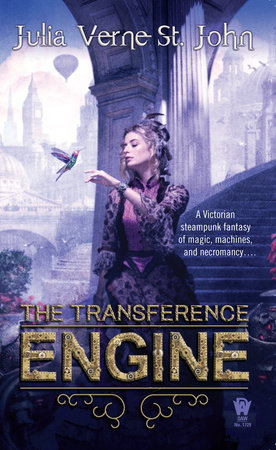Writing Black Rose
by Arlo Z Graves
I knew I wanted to tell stories in first grade.
I entered kindergarten late because at five, I
still couldn’t talk well. Not long after, I ended up in special education
classes and speech therapy. The special ed teacher, a lovely soul of infinite
patience, assigned us a retelling of Cinderella.
I hated school. The sounds, smells, social rules,
they overwhelmed me. But this story, this retelling of Cinderella…it made
sense. I could do that. I couldn’t read or write to any extent at the time. I
recall knowing the alphabet and little else, so my mom typed the thing while I
dictated it.
It was terrible, naturally, the Cinderella story. It
changed me. I knew it was what I wanted in life. I knew I had stories to tell.
I knew I wanted to be a writer.
I didn’t learn to read until I was sixteen. It’s
still a struggle. My brain sees the negative space around the words and letters
before the words themselves. Sometimes there are colors involved too. It’s a
processing difference that modern technology allows me to adapt around. But
before I could change the display of my laptop or simply have it read to me, my
mom read to me. She read so much of my college curriculum, she deserves her own
degree.
My dad told me stories. Every day on the way to
school, he fabricated outrageous adventures of magical creatures living on
Mars.
Between my parents, I might have been behind my
peers in terms of ability, but I was well-read and inspired.
In high school, I started writing fanfiction. I
went through a several-year hyper-fixation on the movies Van Helsing and
Tombstone. So, I wrote about them. I put Van Helsing in the American West. I
pitted him against a shapeshifting menace with a magical revolver. It was
asinine teenage stuff. I called it Black Rose after the magical revolver.
“That’s a good story,” Dad said. “That’s a fun
story.”
I forgot about it and moved on. Fast forward
through a creative writing program at UCSC and several years spinning my wheels
querying.
One day, my partner and I had dinner in Scotts
Valley. I remember tearing up at the table. “I don’t know what I’m supposed to
do,” I said.
I’d been writing and querying, and piling up
dozens, then hundreds of rejection letters.
I don’t remember exactly what my partner said.
Something to the tune of: the right opportunities are coming.
Whatever he said, I got myself together and walked
across the Safeway parking lot to the CVS for soap.
“Excuse me,” said a voice behind me. “That is the
most amazing coat.”
I turned to thank her.
“You look like you stepped right out of a book. I
write fantasy, you could be a character.”
I almost started crying again. “A real writer?” I
asked. “You’re a real writer?”
She was indeed. She was Lillian Csernica (who writes about Finding Happiness in Writing here.)
We ended up meeting for tea. Then tea again. She
introduced me to Duotrope and got me writing in different lengths. Flash
fiction, short stories, novellas. She pushed me. She believed in me.
More important than anything else, than any
stories I may write or sell, I made a friend that day. A stranger in a Safeway
parking lot picked up my broken hope, dusted it off, and handed it back to me.
“Let’s fix this up. You’ve got things to do kid.”
I wrote about things that scared me. I wrote about
the fire, the CZU. That piece went on to win the grand prize in Stories That
Need to be Told.
My parents saved half of our neighborhood during
the fire, and I want to give something back to them. My dad, at seventy years
old, held a firehose over our cabin while a crew backburned up the mountain.
Pieces of homes fell on the roof.
“Are you ever going to write Black Rose?” my dad
still asks me.
I wrote Black Rose.
It’s so stupid, it’s too stupid…I kept telling myself.
I imagined Lillian’s voice in my mind asking: why?
Why is it stupid?
I outlined it, made the magic system, sat down and
wrote the thing. I drew heavily from the Louis L'Amour books my mom read
to me in bulk. I drew from the bonkers antics of my dad’s bite-sized space
operas.
Using my winnings from the fire memoir, I booked a
trip to old west ghost towns for research and took my mom with me. This was
such an important experience. I’d looked at hundreds of images of Rhyolite and
Goldfield Nevada to craft a wasteland setting for the book. But when we got
there in our rental car, we found the landscape rich with color and diverse in
plant and animal life. If I’d gone off of Google’s visions of the Nevada
desert, I would never have known to incorporate so much beauty into the story.
To me, those little details tied it all together into a piece I can be proud
of.
Every time I give my family a writing update, Dad
asks: “when are you going to write Black Rose?”
Don’t tell him I already wrote it. I hope someday
soon, I can hand it to him, bound and polished. He always believed in it and
I’m not sure why. And yet, here it is in spite of everything.
Postscript: Black Rose just made the long list for
the Uncharted Novel Excerpt prize.
Arlo Z Graves is a nonbinary hillbilly who lives in a shack in the woods. ‘Zven’ enjoys ocarina, night hikes, and goth fashion. Their story Gerald: a Memoir won Stories That Need to be Told 2023 and their work can be found at Dragon Soul Press, the 96th of October, and others. Visit Zven on Instagram.
https://www.instagram.com/arlozgraves/








%2C_Schreibunterricht%2C_1865._Oil_on_canvas.jpg/800px-Albert_Anker_(1831-1910)%2C_Schreibunterricht%2C_1865._Oil_on_canvas.jpg)


